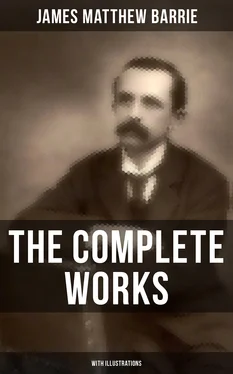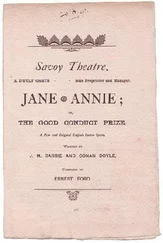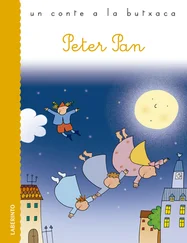The stranger regarded him longingly, like a father only prevented by state reasons from embracing his son.
He murmured something that Andrew hardly caught.
It sounded like:
"Atalanta would have been better dead."
"Your nationality is in your favour," he said, "and you have served your apprenticeship to our calling. You have been tending towards us ever since you came to London. You are an apple ripe for plucking, and if you are not plucked now you will fall. I would fain take you by the hand, and yet—"
"And yet?"
"And yet I hesitate. You seem a youth of the fairest promise; but how often have I let these impulses deceive me! You talk of logic, but is it more than talk? Man, they say, is a reasonable being. They are wrong. He is only a being capable of reason."
"Try me," said Andrew.
The stranger resumed in a lower key:
"You do not understand what you ask as yet," he said; "still less what we would ask in return of you."
"I have seen something to-day," said Andrew.
"But you are mistaken in its application. You think I followed the man lately deceased as pertinaciously as you followed me. You are wrong. When you met me in Chancery Lane I was in pursuit of a gentleman to whose case I have devoted myself for several days. It has interested me much. There is no reason why I should conceal his name. It is one honoured in this country, Sir Wilfrid Lawson. He looked in on his man of business, which delayed me at the shop-window of which you have spoken. I waited for him, and I thought I had him this time. But you see I lost him in the Strand, after all."
"But the other, then," Andrew asked, "who was he?"
"Oh, I picked him up at Charing Cross. He was better dead."
"I think," said Andrew, hopefully, "that my estimate of the sacredness of human life is sufficiently high for your purpose. If that is the only point—"
"Ah, they all say that until they join. I remember an excellent young man who came among us for a time. He seemed discreet beyond his years, and we expected great things of him. But it was the old story. For young men the cause is as demoralizing as boarding schools are for girls."
"What did he do?"
"It went to his head. He took a bedroom in Pall Mall and sat at the window with an electric rifle picking them off on the door-steps of the clubs. It was a noble idea, but of course it imperilled the very existence of the society. He was a curate."
"What became of him?" asked Andrew.
"He is better dead," said the stranger, softly.
"And the Society you speak of, what is it?"
"The S. D. W. S. P."
"The S. D. W. S. P.?"
"Yes, the Society for Doing Without Some People."
They were in Holborn, but turned up Southampton Row for quiet.
"You have told me," said the stranger, now speaking rapidly, "that at times you have felt tempted to take your life, that life for which you will one day have to account. Suicide is the coward's refuge. You are miserable? When a young man knows that, he is happy. Misery is but preparing for an old age of delightful reminiscence. You say that London has no work for you, that the functions to which you looked forward are everywhere discharged by another. That need not drive you to despair. If it proves that someone should die, does it necessarily follow that the someone is you?"
"But is not the other's life as sacred as mine?"
"That is his concern."
"Then you would have me—"
"Certainly not. You are a boxer without employment, whom I am showing what to hit. In such a case as yours the Society would be represented by a third party, whose decision would be final. As an interested person you would have to stand aside."
"I don't understand."
"The arbitrator would settle if you should go."
Andrew looked blank.
"Go?" he repeated.
"It is a euphemism for die," said his companion a little impatiently. "This is a trivial matter, and hardly worth going into at any length. It shows our process, however, and the process reveals the true character of the organization. As I have already mentioned, the Society takes for its first principle the sanctity of human life. Everyone who has mixed much among his fellow-creatures must be aware that this is adulterated, so to speak, by numbers of spurious existences. Many of these are a nuisance to themselves. Others may at an earlier period have been lives of great promise and fulfilment. In the case of the latter, how sad to think that they should be dragged out into worthlessness or dishonour, all for want of a friendly hand to snap them short! In the lower form of life the process of preying upon animals whose work is accomplished—that is, of weeding—goes on continually. Man must, of course, be more cautious. The grand function of the Society is to find out the persons who have a claim on it, and in the interests of humanity to lay their condition before them. After that it is in the majority of cases for themselves to decide whether they will go or stay on."
"But," said Andrew, "had the gentleman in the Thames consented to go?"
"No, that was a case where assistance had to be given. He had been sounded, though."
"And do you find," asked Andrew, "that many of them are—agreeable?"
"I admit," said the stranger, "that so far that has been our chief difficulty. Even the men we looked upon as certainties have fallen short of our expectations. There is Mallock, now, who said that life was not worth living. I called on him only last week, fully expecting him to meet me half-way."
"And he didn't?"
"Mallock was a great disappointment," said the stranger, with genuine pain in his voice.
He liked Mallock.
"However," he added, brightening, "his case comes up for hearing at the next meeting. If I have two-thirds of the vote we proceed with it."
"But how do the authorities take it?" asked Andrew.
"Pooh!" said the stranger.
Andrew, however, could not think so.
"It is against the law, you know," he said.
"The law winks at it," the stranger said. "Law has its feelings as well as we. We have two London magistrates and a minister on the executive, and the Lord Chief Justice is an honorary member."
Andrew raised his eyes.
"This, of course, is private," continued the stranger. "These men join on the understanding that if anything comes out they deny all connection with us. But they have the thing at heart. I have here a very kind letter from Gladstone—"
He felt in his pockets.
"I seem to have left it at home. However, its purport was that he hoped we would not admit Lord Salisbury an honorary member."
"Why not?"
"Well, the Society has power to take from its numbers, so far as ordinary members are concerned, but it is considered discourteous to reduce the honorary list."
"Then why have honorary members?" asked Andrew in a burst of enthusiasm.
"It is a necessary precaution. They subscribe largely too. Indeed, the association is now established on a sound commercial basis. We are paying six per cent."
"None of these American preachers who come over to this country are honorary members?" asked Andrew, anxiously.
"No; one of them made overtures to us, but we would not listen to him. Why?"
"Oh, nothing," said Andrew.
"To do the honorary list justice," said his companion, "it gave us one fine fellow in our honorary president. He is dead now."
Andrew looked up.
"No, we had nothing to do with it. It was Thomas Carlyle."
Andrew raised his hat.
"Though he was over eighty years of age," continued the stranger. "Carlyle would hardly rest content with merely giving us his countenance. He wanted to be a working member. It was he who mentioned Froude's name to us."
"For honorary membership?"
"Not at all. Froude would hardly have completed the 'Reminiscences' had it not been that we could never make up our minds between him and Freeman."
Читать дальше












